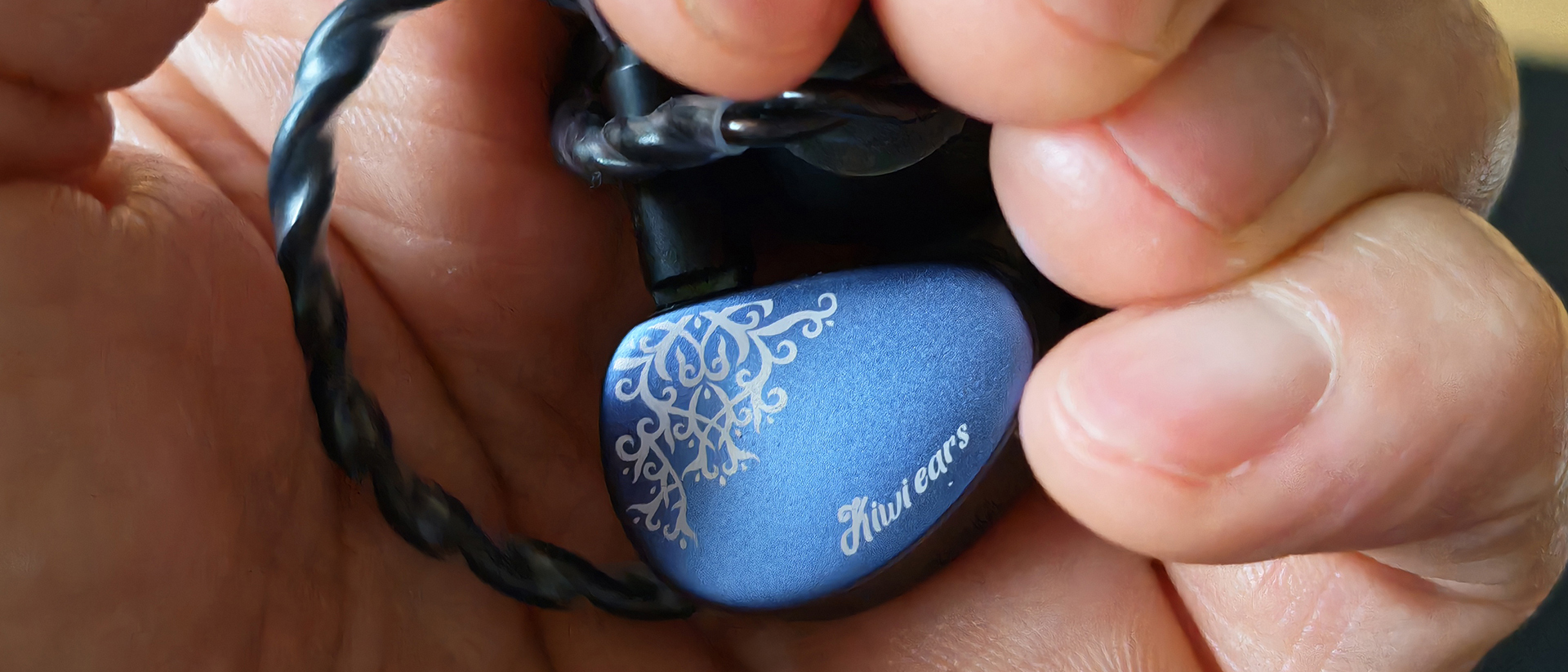"Some UK brands are definitely tired," Koto's James Greenfield on the state of branding today
Co-founder of Koto explores the agency's recent Amazon refresh and more.
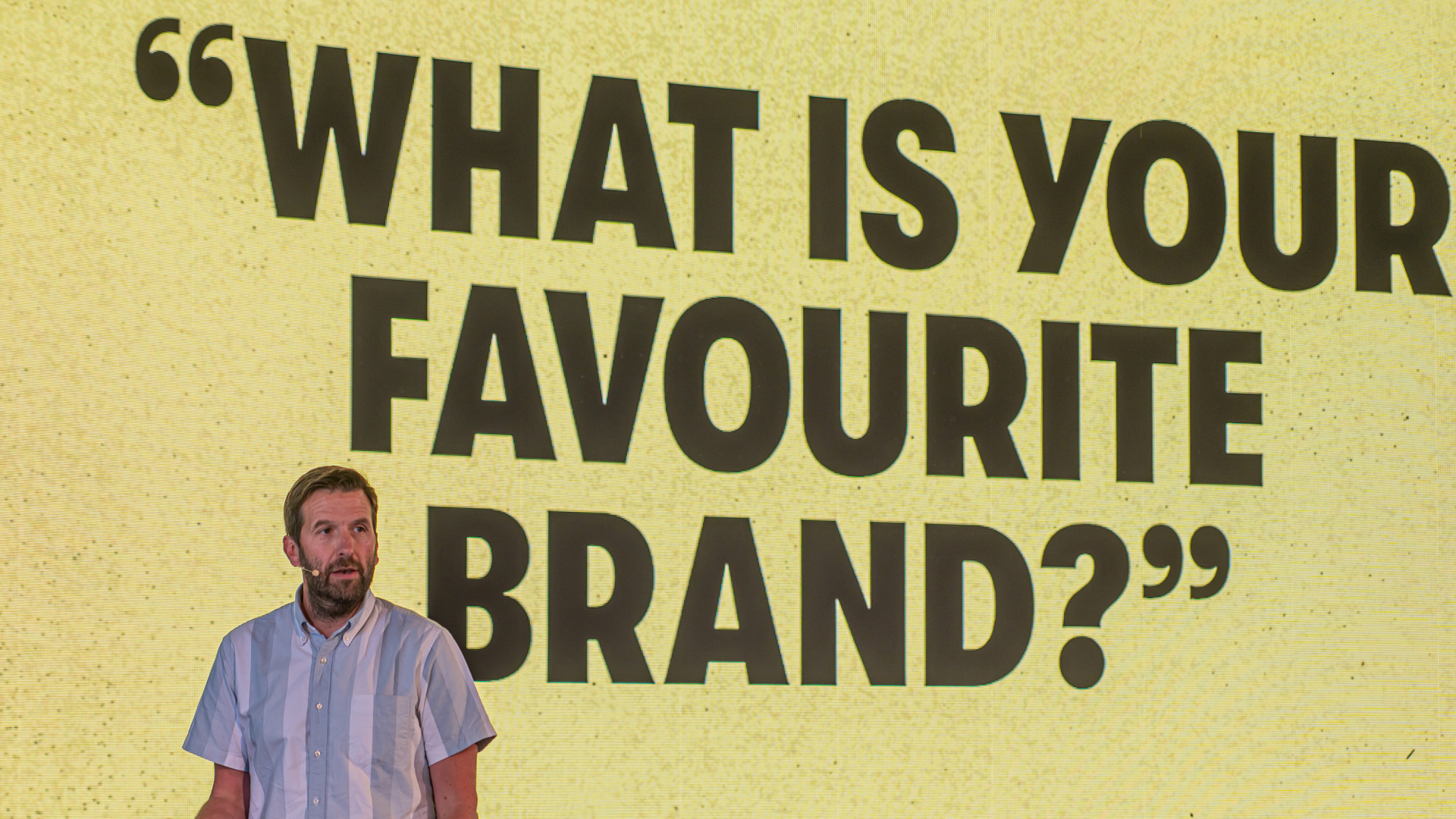
Daily design news, reviews, how-tos and more, as picked by the editors.
You are now subscribed
Your newsletter sign-up was successful
Want to add more newsletters?

Five times a week
CreativeBloq
Your daily dose of creative inspiration: unmissable art, design and tech news, reviews, expert commentary and buying advice.

Once a week
By Design
The design newsletter from Creative Bloq, bringing you the latest news and inspiration from the worlds of graphic design, branding, typography and more.

Once a week
State of the Art
Our digital art newsletter is your go-to source for the latest news, trends, and inspiration from the worlds of art, illustration, 3D modelling, game design, animation, and beyond.

Seasonal (around events)
Brand Impact Awards
Make an impression. Sign up to learn more about this prestigious award scheme, which celebrates the best of branding.
Earlier this week, I saw Koto's CEO and co-founder James Greenfield talk at the inspiring (and very hot!) Paradigms conference in Morocco, presented by Frontify. His jam-packed talk covered why he's fallen out of love with what was his favourite brand: Nike, the importance of design discipline and why brands and agencies need to think long term when crafting a rebrand.
I caught up with him after his talk to discuss copying in the creative world, Koto's recent refresh of Amazon and the state of several big brands in the UK (spoiler alert: some of them aren't looking good).
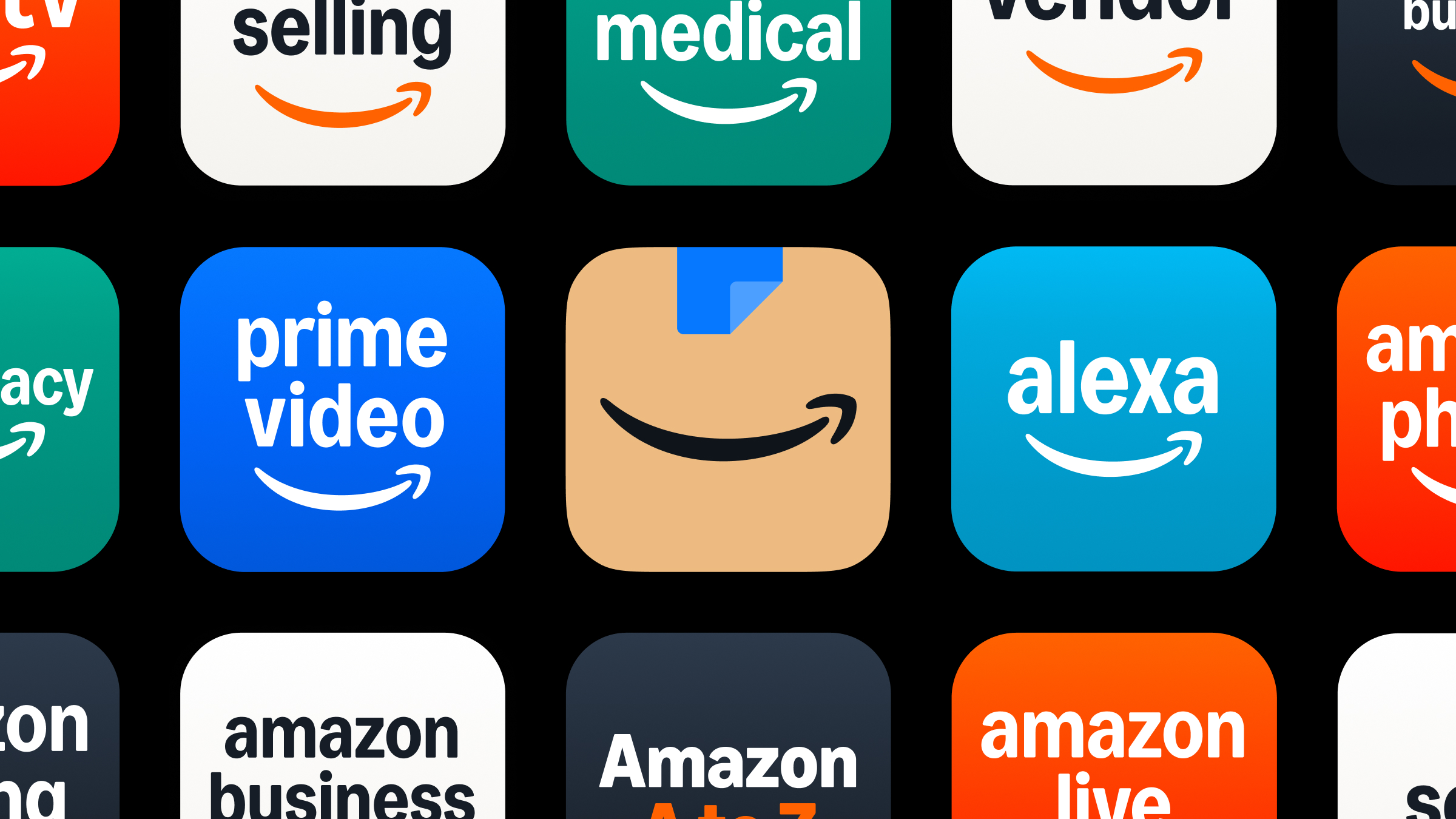
How do you stop your work being copied?
Depends what space you're in, but the general answer to that, I think, is to try and create the work in such a way that if someone else copies you, it's incredibly obvious that they've copied you. And so therefore it has a signature.
The example I used [in my talk] was the Nike and the On websites. I don't think they can argue they're copying them because both of them are just quite simple, and so use a style that's very well established. And so I think they haven't created an asset that was 'uncopyable' and they probably – if they were honest with themselves – would know that when they put that out.
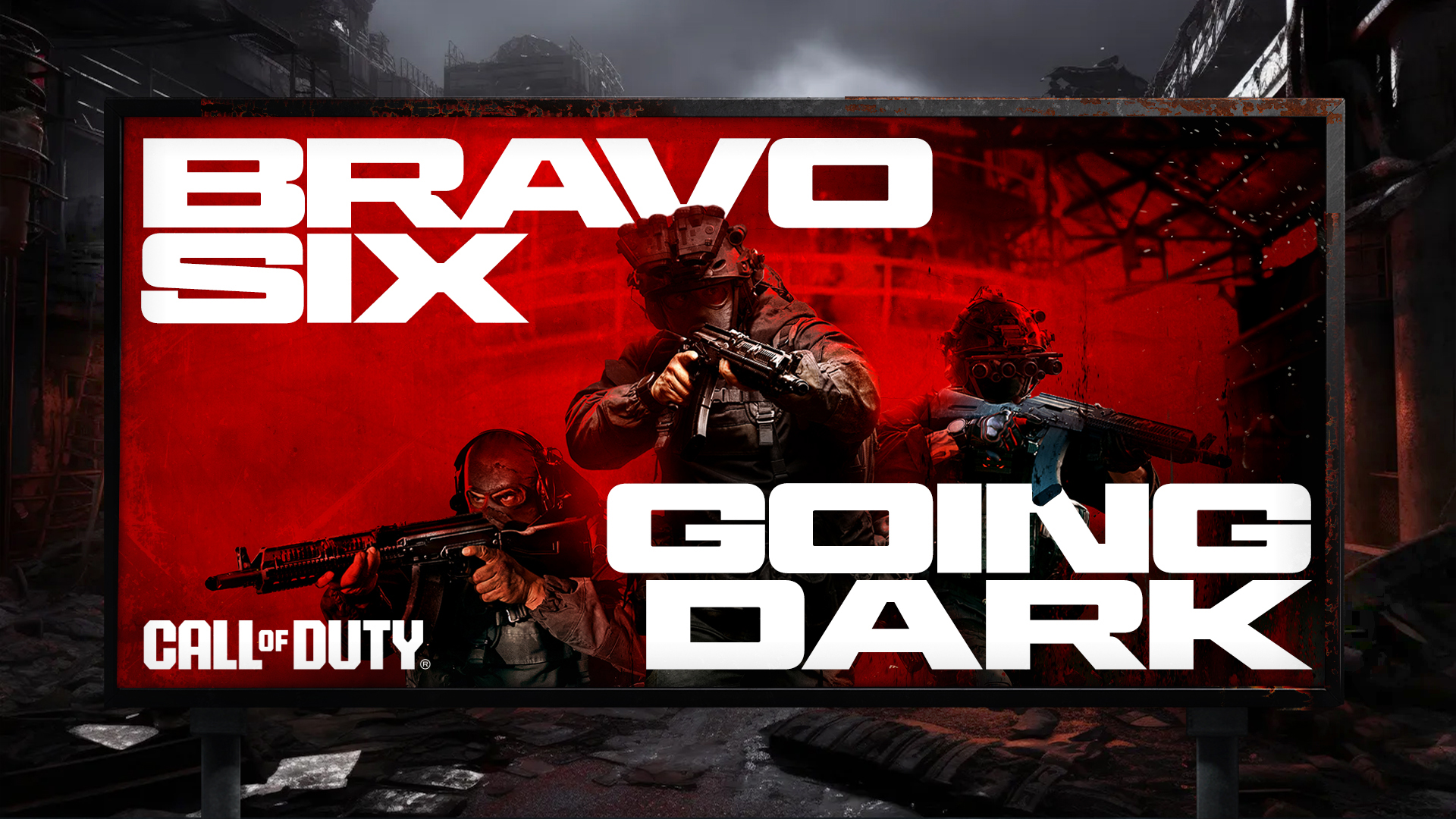
What do you think you've created that is 'uncopyable'?
Sometimes people intentionally try to copy other people, but don't do it intentionally. It's just more around aspiration, maybe, or inspiration. I think something like Airbnb’s got a signature to it and people have tried to copy it, but I think it's obvious when you see the copy. I think you can feel that.
But that's also speaking 12 years later versus more recently. I think more recently when we think about some other things that we've done, it's about trying to be the best in that category.
With Call of Duty, someone could copy the typeface, but it's not Call of Duty – we were lucky enough to work with the leading game, and we created assets that really celebrated that and built that around that. I think people will always naturally think of the market leader.

Your Amazon refresh caused quite a stir earlier in the year. Do you think that we're entering a new era of tweaking a brand as opposed to overhauling it?
I think both are still valid. I think it really depends upon a number of factors. Like one, how that brand's doing. We definitely have some UK brands that are tired and I think whether you're thinking about brands like O2 or Sky, I feel like they haven't changed and they haven't moved with the times. And I think customers can feel that.
Now, if I was given the brief to deal with either of those right now, I would revolutionise them because I feel like they need it... But if I was given something, let's say, like the Body Shop or another high street iconic brand, I’d probably evolve it because I still think it's got goodwill and it's got good heritage and it's good, and so I really think it depends upon what the brand is.
I think one of the things we' really bad with in the UK at the moment is legacy brands that are legacy brands for no other reason but familiarity. So Direct Line has a telephone on wheels as its logo, when 50 per cent of their customers have never used that type of telephone. Carphone Warehouse is called Carphone Warehouse when I would say 70% of its customers don't even know what a car phone is.
There is a lack of discipline there to really understand how your brands exist in a marketplace. And so to me, it really just depends how critical those elements are for it to be successful moving forward.
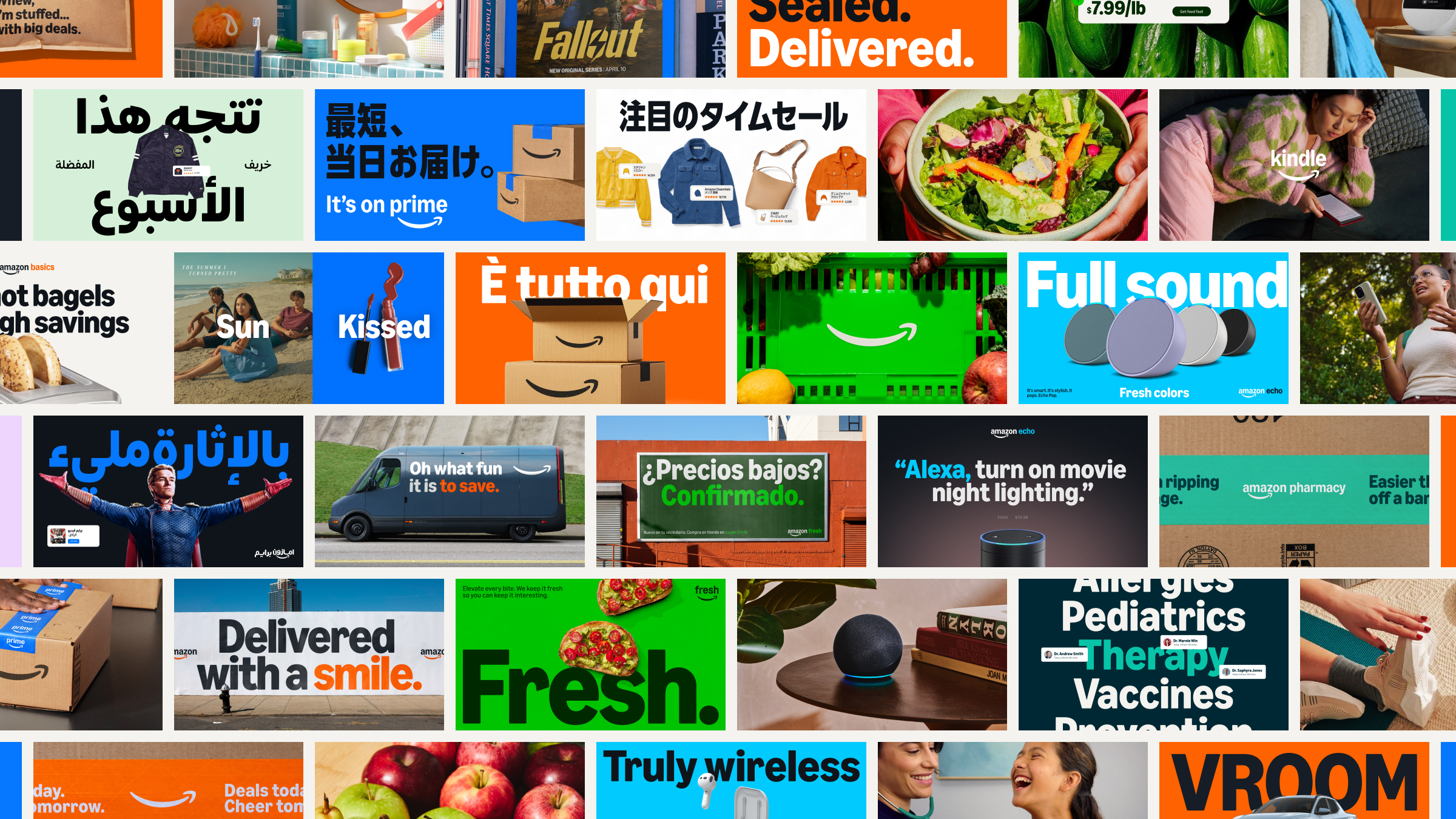
What did you learn from the Amazon refresh?
The number one thing I learned from the Amazon refresh is that there are really interesting breaks within the Amazon brand, where people will be heavy consumers of one bit, but won't consider another bit.
And so therefore we had more work to do on that than I maybe anticipated on the way in. If you want to try and get someone to be an online pharmacy customer, that's a really difficult thing compared to getting them to open Prime and watch some content. And I think I really underestimated the difference of those kinds of experiences to people.

Do you think that your work has done enough to bridge the gap?
It’s the beginning. I think it needs heavy storytelling, it needs to understand the digital experience. I think it needs to understand how people have different relationships with the brand.
As a UK consumer, I think about brown boxes, but half the world don't ever get brown boxes from Amazon. And so it's very easy to put your own experience of Amazon on top of the brand as a whole. You need that kind of nuance market by market and probably quite sophisticated storytelling to help understand how people navigate these brands and understand them.
What do you think that we can learn from Apple's branding success?
I think they have really been disciplined about design being at the centre of everything that they do and have proved that it gives immense value. You could argue that their design is less impressive today, but they did such a good job of it at some point in time that all of us are just locked into this idea of it [being] a design company. And that is just unique. I don't think there's anyone else that's ever much to achieve it quite to that level.
Maybe Ferrari, but that's a niche product that 99.9% of the population can never afford and only aspires to. So that's probably the only other brand that I could think of in that market.
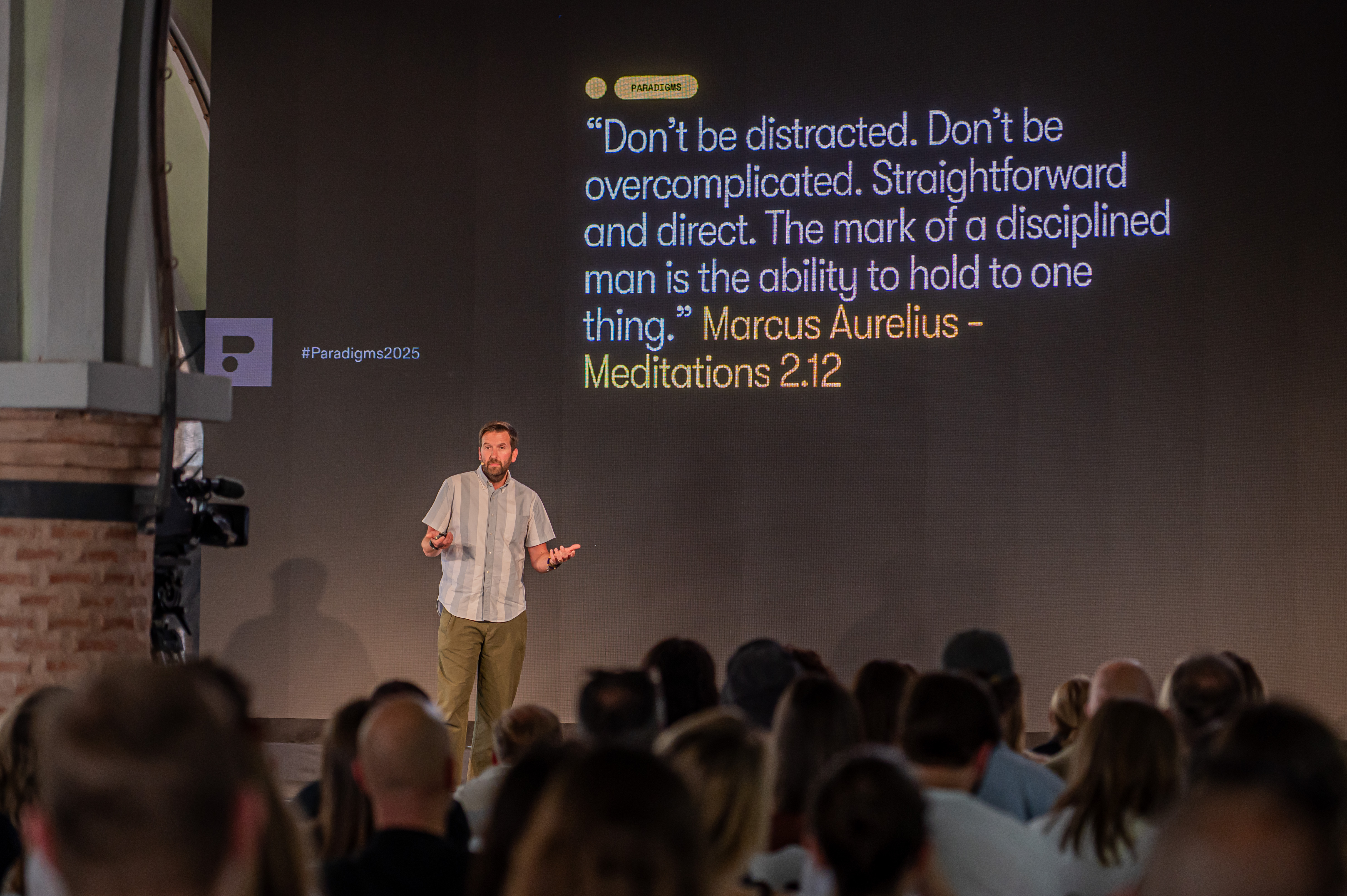
What advice would you give to young creatives?
It's not just what things look like. It's about the why behind them, how they sit in the context. You have to be broadly understanding of that, [you have to] understand a company’s motives, you have to understand culture, you have to understand the news environment, the business environment.
So many things are required, and I think too many creatives just go, ‘I want to be creative’, which is great. It's lovely thing, but creativity exists in context.
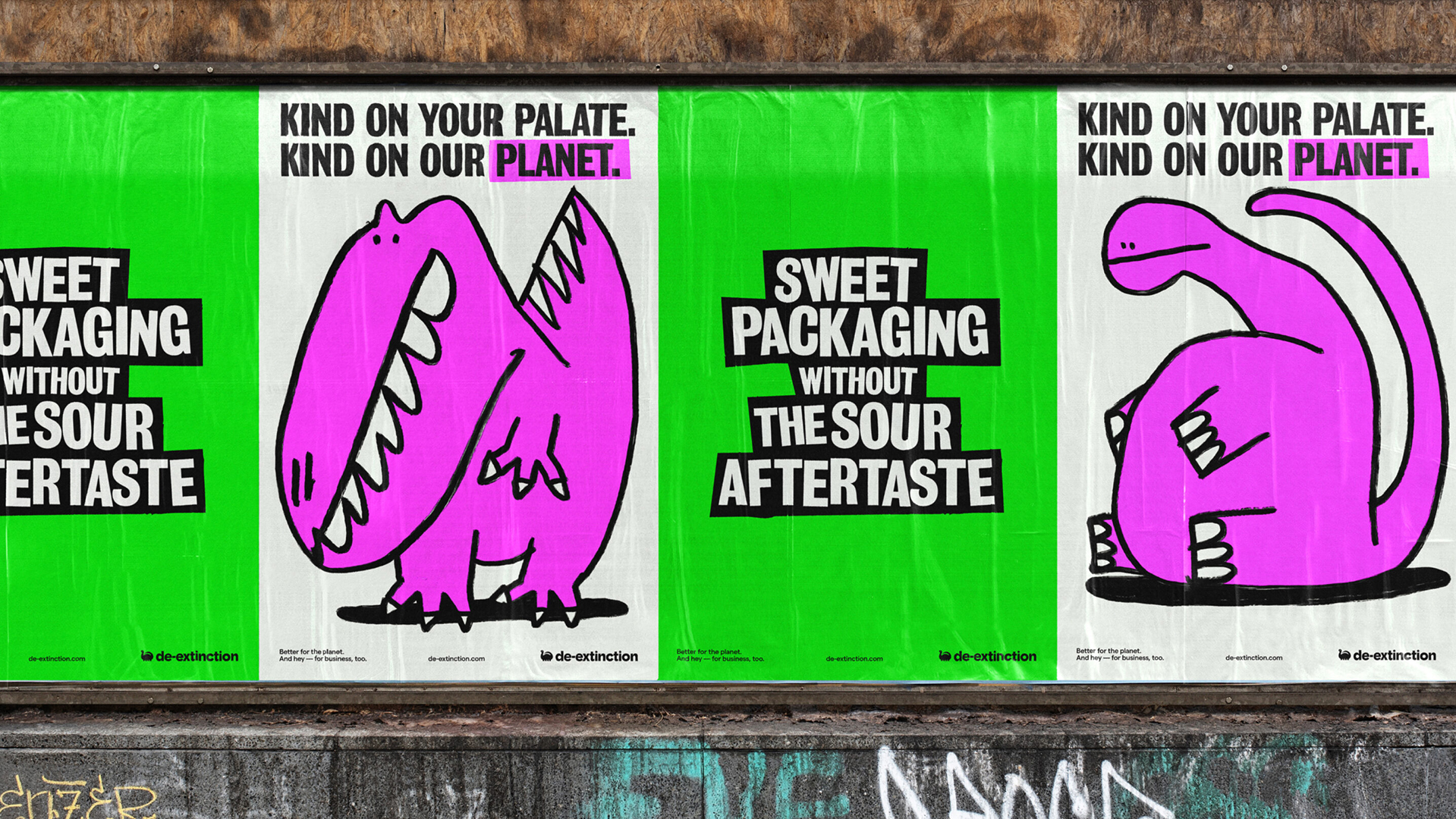
What's a creative risk that you've taken?
I think we're not afraid to make brands that've got attitude. Some people try to make a brand that's like the mean of something, so it's like directly in the middle. Whereas actually, I think you have to start from somewhere and then you can build into that mass place. Pushing brands to a more edgier space is probably a bit of a risk at times because it could work, it could fail.
We did a brand recently for a patching company for De-extinction. And it's about recyclable compostable packaging. And we basically talked to it about dinosaurs being the extinct. That seems a pretty out there position for a packaging company.
But our position was, you really need to make a combustible packaging system memorable. Otherwise it's just one of many. And so therefore if you give it a brand that's got lbuckets of attitude and it's frankly quite out there. Some people are going to love it. Some people are going to love it. Whereas if you make a medium brand, no one's going to love it and some people just think it's okay.
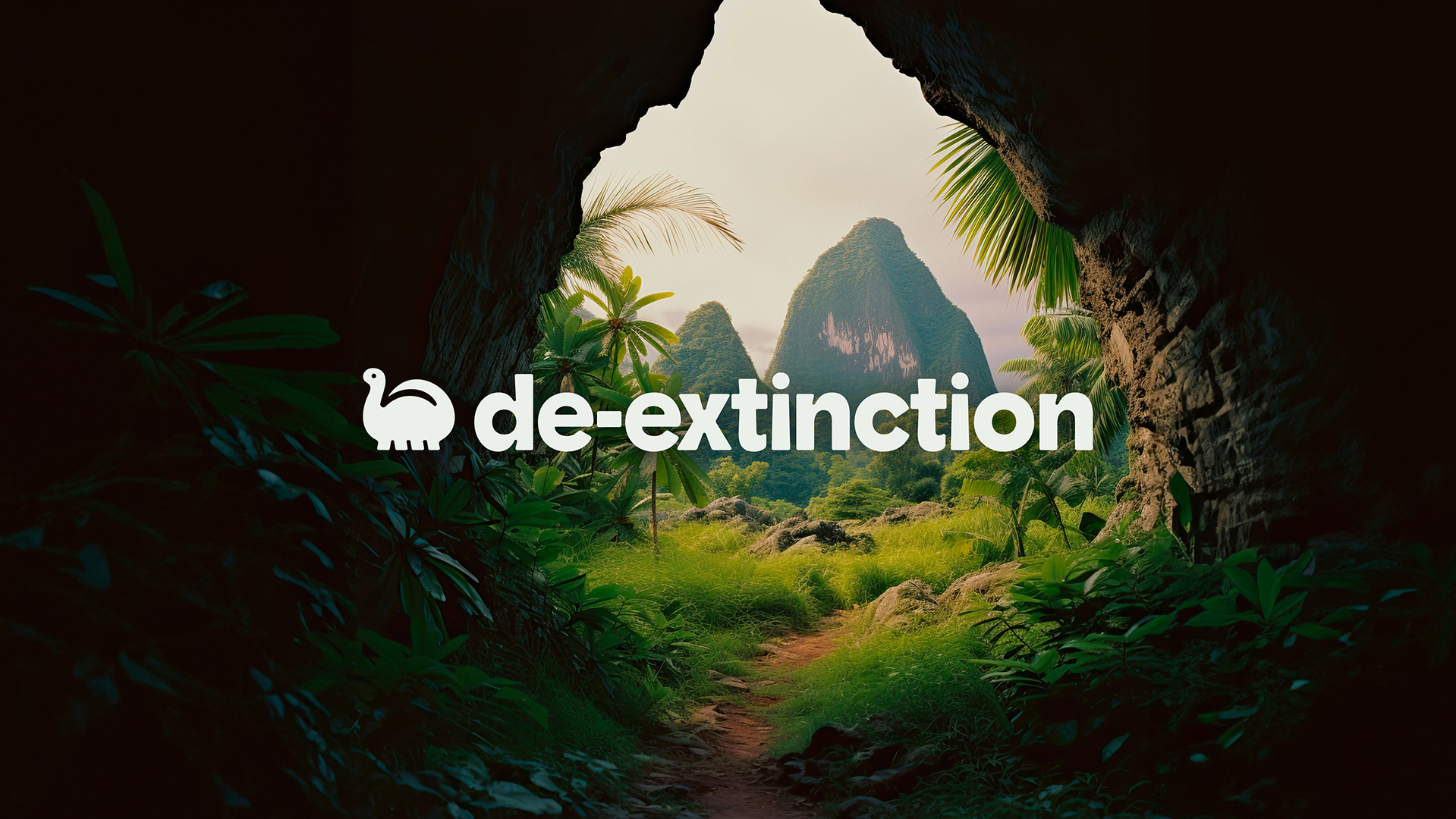
If you had to sum up the design sphere, what would you say?
Never been stronger.
Discover more about Koto,Paradigms and Frontify.
Daily design news, reviews, how-tos and more, as picked by the editors.

Rosie Hilder is Creative Bloq's Deputy Editor. After beginning her career in journalism in Argentina – where she worked as Deputy Editor of Time Out Buenos Aires – she moved back to the UK and joined Future Plc in 2016. Since then, she's worked as Operations Editor on magazines including Computer Arts, 3D World and Paint & Draw and Mac|Life. In 2018, she joined Creative Bloq, where she now assists with the daily management of the site, including growing the site's reach, getting involved in events, such as judging the Brand Impact Awards, and helping make sure our content serves the reader as best it can.
You must confirm your public display name before commenting
Please logout and then login again, you will then be prompted to enter your display name.
